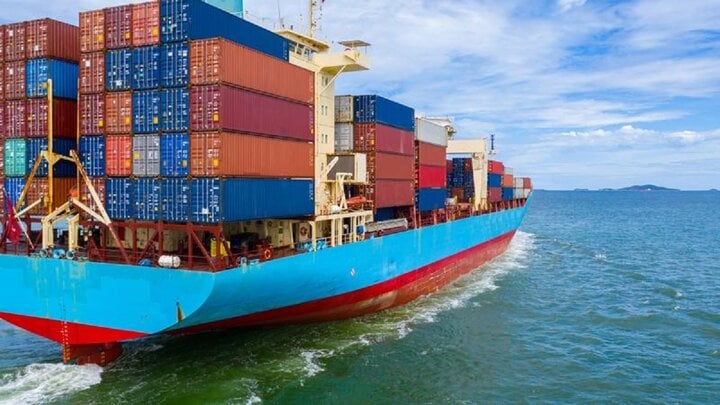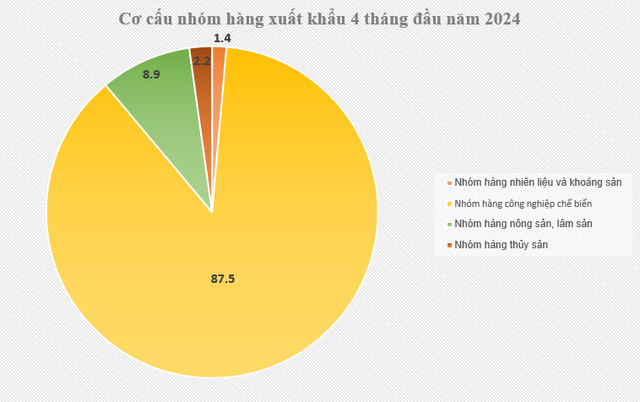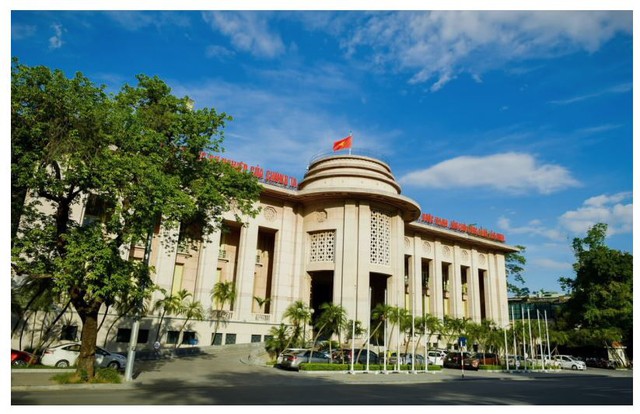This has caused the price of goods to increase due to shipping costs, reducing competitiveness with foreign competitors.
Replying to VTC News, Mr. Nguyen Dinh Tung, CEO of Vina T&T Group Company, a company specializing in exporting fresh fruits, said: “The companies have made recommendations but they have not been resolved, because shipping companies always cite reasons for having cargo one way and empty the other way, lack of containers… so they have to charge high prices to compensate for the costs. Meanwhile, domestic businesses still have to rely on them because Vietnam does not have any major shipping lines to replace them.”
Mr. Tung estimates that with this increase in freight, if the price of each container increases by 20%, the export price of fruits of businesses will have to increase by 4-5%, leading to a decrease in competitiveness with fruits from other countries. “We recommend that relevant agencies quickly intervene and stop companies in the shipping industry from arbitrarily raising freight rates and fees,” Mr. Tung proposed.
Sharing the same viewpoint, Mr. Mai Xuan Thin, CEO of Rong Do Co., Ltd. (Ho Chi Minh City), specializing in exporting fresh fruits, also said that foreign shipping lines not only increased their freight rates by hundreds of USD, but they also increased them even more. Specifically, sea trips to Europe, America, and the Middle East have increased sharply from over 1,000 – 2,500 USD per container.
“For example, each container going to the United States before October 2023 was priced at about 2,000 USD, now they have increased to over 4,000 – 4,500 USD. This greatly affects the export activities of businesses because the freight cost accounts for about 16 – 20% of the product’s cost,” Mr. Thin said.
According to Mr. Thin, when transportation costs increase, the price of exported fruits must also increase, reducing competitiveness and opportunities to conquer export markets. In the case of previously signed orders, export businesses cannot increase prices, so they have to accept losses to maintain the old price and to retain customers.

Export businesses are facing difficulties due to high shipping costs. (Illustrative photo: An Giang Newspaper)
Self-increasing THC fees, only applicable to Vietnam?
In a recent letter sent to the Prime Minister and relevant ministries and agencies, the Vietnam Shippers’ Association stated that when Circular 39 – the decision to change the price of services for using ports, wharves, and loading and unloading containers, issued by the Ministry of Transport and effective from February 15, is implemented in late 2023, immediately since the beginning of February 2024, foreign shipping lines have announced an increase of 10 – 20% for THC fees (terminal handling charges) for each type of container service in Vietnam.
Notably, this fee increase only applies to Vietnam, while other countries in the region have not shown any intention to increase THC fees.
In absolute terms, if we consider the value, the 10 – 20% increase of THC fees by shipping lines is three times higher than the adjustment of container loading and unloading fees at Vietnamese seaports.
“Foreign shipping lines unilaterally change prices 15 days before the adjustment and without any inspection, explanation of the factors constituting fees, surcharges, or any reports or restrictions from regulatory agencies,” the association’s letter stated.

Increased shipping rates have made it difficult for export businesses. (Illustrative photo).
According to the Vietnam Shippers’ Association, foreign shipping lines have unilaterally imposed dozens of types of fees and surcharges for goods of Vietnamese import-export businesses for many years.
Not only that, shipping lines have also continually increased these types of fees and surcharges without being based on any regulations of the state management agencies, mostly at a very high level, much higher than the container loading and unloading fees that shipping lines pay to Vietnamese seaports.
According to Mr. Phan Thong, Secretary-General of the Vietnam Shippers’ Association, after 5 years without adjusting any service prices, from February 15, 2024, service prices such as terminal handling charge, bridge and wharf usage, buoy usage, container loading and unloading service, and towing service at Vietnamese ports will be adjusted according to Circular No. 39/2023/TT-BGTVT.
The reason why foreign shipping lines are increasing THC fees is partly because of the increase in accordance with this circular. However, what makes import-export businesses feel unconvincing is that the increase according to Circular No. 39 is basically about 100,000 – 200,000 VND/container, while shipping lines have increased THC fees to more than 500,000 VND/container.
In addition, this circular divides the country’s seaports into 3 areas with different levels of increase, but shipping lines have increased THC fees uniformly for ports in Vietnam.
Time to tighten regulations
In a recent letter to the Prime Minister and relevant ministries and agencies, the Vietnam Shippers’ Association proposed that the ministries and agencies promptly issue regulations and control mechanisms for the collection of fees by foreign shipping lines, thereby removing difficulties for businesses.
Accordingly, it is necessary to supplement the collection of surcharges outside the price of container transportation services by sea into the list of goods and services subject to price declaration to complete the price management mechanism and types of surcharges for goods at ports, to avoid cases where shipping lines arbitrarily increase prices and illegally collect fees that affect the rights of import-export businesses.
Shipping lines need to submit a report on the structure of THC fees. In the case where these surcharges become super profits, they should propose that the competent authorities consider applying special consumption tax policies.
In addition, it is necessary to promptly review and issue a management mechanism for collecting various types of surcharges, comparing them with the regulations of Vietnamese law and international practices, and requesting that shipping lines immediately stop charging unreasonable surcharges. At the same time, it is recommended that the Prime Minister issue appropriate mechanisms to manage the collection of fees by foreign shipping lines operating in Vietnam.
Mr. Pham Quoc Long, Chairman of the Vietnam Maritime Service Agents – Brokers – Forwarders Association (VISABA), said that currently, foreign shipping lines only need to post price changes 15 days before the adjustment and without any inspections or explanations of the factors constituting fees, surcharges, or any reports or restrictions from regulatory agencies.
“It is time to tighten the management of surcharges for foreign shipping lines. To do that, it is necessary to study the legal aspects as well as international practices. They can be required to obtain approval from the management agencies and associations before issuing any fee increases,” Mr. Long expressed his opinion.





































